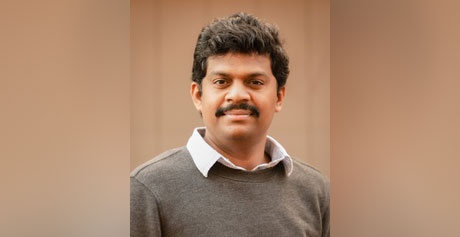Killing in War Leaves Veterans with Lasting Psychological Scars, Study Finds

Killing in war often triggers a moral conflict in Veterans that can damage self-image, spirituality and relationships, according to the findings of a study by researchers at the University of California, San Francisco (UCSF) and the San Francisco Veterans Affairs Health Care System (SFVAHCS).
For many of these Veterans—some of whom may already suffer from post-traumatic stress (PTSD)—guilt, shame, anger and isolation compound mental wounds. And emotional scars from killing in combat can last for decades, said Shira Maguen, PhD, UCSF associate professor of psychiatry and mental health director of the SFVAHCS Integrated Care Clinic, which cares for Iraq and Afghanistan war Veterans.
Maguen’s earlier research—supported by NCIRE - The Veterans Health Research Institute—has linked killing in combat with PTSD, depression, and suicide. The new study, published in the October issue of Counseling Psychologist, sheds more light on moral injury suffered by Veterans who have killed and the stigma they carry.
In the report, Veterans describe how they felt after killing in combat and some open up about hidden agonies.
“All I knew is I hurt inside and I didn’t know why, you know? I didn’t know why I should feel so bad if I didn’t do anything wrong,” said one Veteran in the study. “I was not a baby killer. I was not—I did my job. I did what everybody else did. But always that nagging question, why do I hurt like this?”
Maguen, principal investigator of the study, notes that not all Veterans who have taken a life suffer guilt or mental health consequences. One Veteran in the study said: “I don’t think about it and it didn’t bother me when I was in that situation. For us it’s kill or be killed—your friends were getting killed, so it wasn’t that hard to kill somebody…. If you’re going to kill me, I’m going to kill you. So, for me it was easy. I don’t have any guilt about it, really.”
But the growing number of Veterans seeking mental health services portends high numbers of Veterans hurting from moral injury. While the exact numbers of Veterans who have killed in war or who suffer moral wounds are unknown, a 2004 study by Army medical researchers found that 87 percent of Marines and 77 percent of Army soldiers deployed to Iraq reported directing fire at the enemy, frequently resulting in the death of enemy combatants (65 percent Marine, 48 percent Army) and non-combatants (28 percent Marine, 14 percent Army).
Maguen and co-researchers urge communities to create space and opportunity for Veterans to express themselves. “Civilians, including mental health professionals, have an opportunity and an obligation to better understand Veterans’ experiences and to join them in confronting difficult truths about the violence of war, its meaning, and its consequences,” stated study authors. “In doing so, we can begin to break through the postwar silence that masks moral injury, sustains isolation and reinforces trauma.”
The study in Counseling Psychologist was based on focus group and individual interviews with 26 war Veterans who had killed or believed that their combat actions caused the death of others. Eighteen were Vietnam Veterans and eight were deployed in Iraq.
“The concept was to talk about the wounds of the spirit, instead of wounds to the body,” said lead author Natalie Purcell, PhD, UCSF assistant adjunct professor, Social & Behavioral Sciences, and director of the Patient Centered Care Program at the SFVAHCS.
There were several themes in how Veterans described their experiences, said Purcell. The study categorized those themes across five domains:
Talking. Most Veterans said that killing was the most challenging war experience to talk about, but it was the topic they were asked about most frequently by others. “Many Veterans feared that, if they talked about killing, they would be judged or mischaracterized by other people’s notions of what it means to be a combat Veteran,” said Purcell. “Being asked about killing left many Veterans feeling anxious, isolated and even angry because most felt that someone who did not serve in war could not possibly understand what it was like to kill,” said Purcell.
Feeling. “Many Veterans described feeling guilt and shame about their experiences,” said Purcell. “Others felt numb and unable to feel after so much exposure to killing and death in combat.”
One Veteran in the study said: “Some of the things I did were totally wrong, you know, in my conscience. But when I was over there…you don’t really care about what’s going on and I was on a power trip…. But then you have to come back and you have to think about that later on and what you’re responsible for and that’s very hard. That comes back to haunt me all the time.”
Identifying. Many described confronting a “dark side” of themselves they did not know existed before they had killed in combat. “For some, it really disrupted their sense of identity and made it difficult to think of themselves as good,” said Purcell.
A Veteran said: “Probably, somewhere down deep there is that thought, there’s that anger, there’s that beast down there that you don’t want to wake up. I’ve always felt like that beast, that thing is asleep for most of my life. Because when you were there, the killing and the adrenaline rush that goes along with it can awaken that beast.”
Relating. Isolation was a common theme, as many Veterans felt civilians could not possibly understand and relate their experiences. Some found it hard to get close to others because they had to hide that they killed in combat.
“Getting close to people—been a big issue for me—caused me to get a divorce, the agitation, irritability through all those years and not really talking to my ex-wife or kids at that time,” said a Veteran in the study.
Coping. Many Veterans wanted to avoid any reminders of their combat experience, and turning to alcohol and isolating from others were common ways to cope.
“But many Veterans also found that, in the long term, the only thing that helped them feel a sense of healing was talking about and processing their experiences, especially with other Veterans and sometimes with therapists or loved ones,“ said Purcell. “Some also found a sense of healing and relief in volunteering or giving back to the community as a way to rebuild a positive identity and a sense of themselves as good people.”
At the SFVAHCS, Maguen and Purcell have initiated research, outreach and model therapies for Veterans with moral injury. These are coordinated with PTSD and general psychiatry programs.
Their Impact of Killing (IOK) treatment program emphasizes self-forgiveness, and it focuses on helping Veterans make amends, heal relationships, plan for their future and move forward. Exercises include discussion groups with fellow Veterans and writing letters to the person they killed.
Creating opportunities for Veterans to express themselves is important, said Purcell. She has led Veterans’ reading and poetry groups that discuss the experience of war and coming home.
Another focus of the IOK program, said Maguen, is “building bridges” in the community, especially to the spiritual community, which is increasingly concerned and sympathetic to the Veterans’ plight and moral injury.
“It’s clear that helping Veterans work through their experiences calls for tremendous sensitivity, empathy and patience,” said Purcell./ ABOUT NCIRE
ABOUT NCIRE
NCIRE - The Veterans Health Research Institute has one mission and one goal: Advancing Veterans Health. We sustain a scientific community of clinicians and researchers and support over 200 researchers who have joint faculty appointments at UCSF and SFVAHCS and are working to foster innovation and thought leadership in the field of Veterans health research. Our broad portfolio of projects receives generous support from the National Institutes of Health, the Department of Defense, and individual donors, making us the leading nonprofit research institute devoted to Veterans health in the United States. NCIRE is a 501(c)3 nonprofit research institute and all gifts are tax deductible (Tax ID #94-3084159). Visit NCIRE at www.ncire.org or contact Karen Steeber at 415-750-6643.

